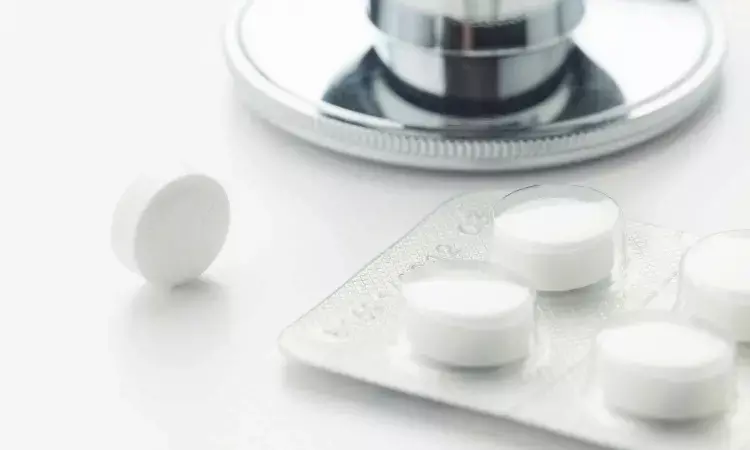- Home
- Medical news & Guidelines
- Anesthesiology
- Cardiology and CTVS
- Critical Care
- Dentistry
- Dermatology
- Diabetes and Endocrinology
- ENT
- Gastroenterology
- Medicine
- Nephrology
- Neurology
- Obstretics-Gynaecology
- Oncology
- Ophthalmology
- Orthopaedics
- Pediatrics-Neonatology
- Psychiatry
- Pulmonology
- Radiology
- Surgery
- Urology
- Laboratory Medicine
- Diet
- Nursing
- Paramedical
- Physiotherapy
- Health news
- Fact Check
- Bone Health Fact Check
- Brain Health Fact Check
- Cancer Related Fact Check
- Child Care Fact Check
- Dental and oral health fact check
- Diabetes and metabolic health fact check
- Diet and Nutrition Fact Check
- Eye and ENT Care Fact Check
- Fitness fact check
- Gut health fact check
- Heart health fact check
- Kidney health fact check
- Medical education fact check
- Men's health fact check
- Respiratory fact check
- Skin and hair care fact check
- Vaccine and Immunization fact check
- Women's health fact check
- AYUSH
- State News
- Andaman and Nicobar Islands
- Andhra Pradesh
- Arunachal Pradesh
- Assam
- Bihar
- Chandigarh
- Chattisgarh
- Dadra and Nagar Haveli
- Daman and Diu
- Delhi
- Goa
- Gujarat
- Haryana
- Himachal Pradesh
- Jammu & Kashmir
- Jharkhand
- Karnataka
- Kerala
- Ladakh
- Lakshadweep
- Madhya Pradesh
- Maharashtra
- Manipur
- Meghalaya
- Mizoram
- Nagaland
- Odisha
- Puducherry
- Punjab
- Rajasthan
- Sikkim
- Tamil Nadu
- Telangana
- Tripura
- Uttar Pradesh
- Uttrakhand
- West Bengal
- Medical Education
- Industry
Esketamine improves pain management following thoracic surgery

A recent study published in the Pain Physician Journal found that intraoperative intravenous esketamine not just reduces postoperative opioid consumption in patients undergoing thoracic surgery, but also improves the quality of perioperative recovery.
Postoperative pain management is essential for patients undergoing thoracic surgery, and opioids are a cornerstone in managing postoperative pain. However, their use may be limited by many adverse events. Recent studies have shown that the perioperative application of esketamine adjuvant therapy can reduce postoperative opioid consumption. This study by Jingjing Yuan and peers explored the opioid-sparing effect of different doses of esketamine infusion during thoracic surgery and its impact on patient recovery.
The study design was a randomized controlled study conducted in a single center with a total of 120 patients. Patients were randomly allocated to three groups: group K1 received intraoperative intravenous infusions of esketamine at 0.15 mg/kg/h, group K2 received esketamine at 0.25 mg/kg/h, and group C received a placebo. The postoperative opioid consumption and postoperative recovery indicators were recorded for each group.
The results of the study showed that the consumption of hydromorphone during the first 24 and 48 postoperative hours was significantly reduced in patients of group K2 compared to those of group C and group K1.
The time to extubation and post-anesthesia care unit (PACU) stay were significantly shorter in group K2 than in group K1 and group C. The time to first feed and off the bed time after surgery were shorter in groups K1 and K2 than in group C.
Moreover, patients in group K2 were significantly more satisfied with patient-controlled intravenous analgesia (PCIA) than in groups K1 and C.
The findings suggest that intraoperative intravenous esketamine at 0.25 mg/kg/h reduced postoperative opioid consumption by 34% in postoperative 24 hours and 30% in postoperative 48 hours in patients undergoing thoracic surgery.
Source:
Yuan, J., Chen, S., Xie, Y., Wang, Z., Xing, F., Mao, Y., Wang, J., Yang, J., Li, Y., & Fan, X. (2022). Intraoperative Intravenous Infusion of Esmketamine Has Opioid-Sparing Effect and Improves the Quality of Recovery in Patients Undergoing Thoracic Surgery: A Randomized, Double-Blind, Placebo-Controlled Clinical Trial. Pain physician, 25(9), E1389–E1397.
Neuroscience Masters graduate
Jacinthlyn Sylvia, a Neuroscience Master's graduate from Chennai has worked extensively in deciphering the neurobiology of cognition and motor control in aging. She also has spread-out exposure to Neurosurgery from her Bachelor’s. She is currently involved in active Neuro-Oncology research. She is an upcoming neuroscientist with a fiery passion for writing. Her news cover at Medical Dialogues feature recent discoveries and updates from the healthcare and biomedical research fields. She can be reached at editorial@medicaldialogues.in
Dr Kamal Kant Kohli-MBBS, DTCD- a chest specialist with more than 30 years of practice and a flair for writing clinical articles, Dr Kamal Kant Kohli joined Medical Dialogues as a Chief Editor of Medical News. Besides writing articles, as an editor, he proofreads and verifies all the medical content published on Medical Dialogues including those coming from journals, studies,medical conferences,guidelines etc. Email: drkohli@medicaldialogues.in. Contact no. 011-43720751


